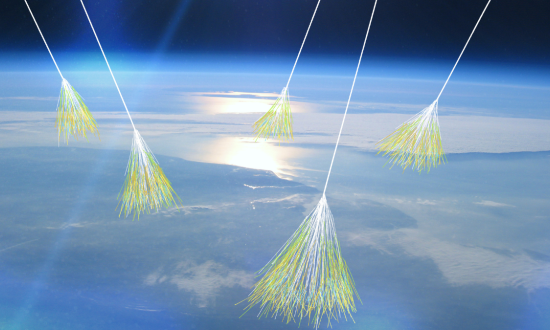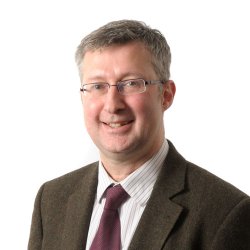Surrey to develop new telescope to measure extreme space weather
Scientists at the University of Surrey will boost understanding of space weather which could make flying safer, thanks to £250,000 from the UK Space Agency announced today (21 November).

The Surrey team are developing prototypes for a new High Energy Proton Telescope, known as HEPTEL, which aims to measure the radiation caused by solar flares in space, before it reaches the Earth’s atmosphere. It will monitor extremely high energy protons, the dominant particle type from solar events which can, once they penetrate the atmosphere, stop electronic devices from working properly: systems on aircraft are more at risk due to their altitude.
Professor Keith Ryden, Director of Surrey Space Centre and the project lead, said:
“Extremely high energy solar proton events occur on average once a year but do vary a lot in intensity; the most severe could have a significant impact on avionics potentially leading to increased pilot workload. Given the ever-increasing quantity of electronics on-board, future aircraft will need to be designed to cope with intense events, so we need research like this to enable better modelling and higher levels of understanding.”
Current measurements of the space radiation environment focus on much lower energy protons. At present the highest energy protons are primarily detected at ground level, so by conducting measurements in space the Surrey team expect to get more accurate data. Professor Ryden said:
“It’s like understanding weather by examining the clouds, not just observing the rain.”
Professor Ryden leads one of the world’s leading research groups measuring the space weather radiation environment. As well as impacting electronics on aircraft, a thorough understanding of space weather and radiation risk is crucial for interplanetary travel and the development of settlements on the Moon and Mars.
The project is funded by the second round of the UK Space Agency’s Enabling Technologies Programme.
Dr Paul Bate, CEO of the UK Space Agency, said:
“Space science and technology has never been more important to life on Earth. The Enabling Technologies Programme demonstrates how our work at the UK Space Agency is empowering scientists and engineers in universities, companies and research institutes to develop new capabilities and advance the technologies of tomorrow. From the use of space data for weather predication and flood monitoring, to new methods of propulsion and in-orbit servicing, these new projects are great examples of how we can harness the power of space to protect our planet and people.”
Surrey Space Centre is exhibiting at the European Space Weather Conference (20-24 November) and at the UK Space Conference (21-23 November).
Read more about extreme space weather in the Royal Academy of Engineering’s report.
Media Contacts
External Communications and PR team
Phone: +44 (0)1483 684380 / 688914 / 684378
Email: mediarelations@surrey.ac.uk
Out of hours: +44 (0)7773 479911
